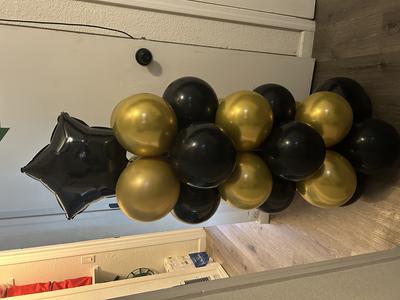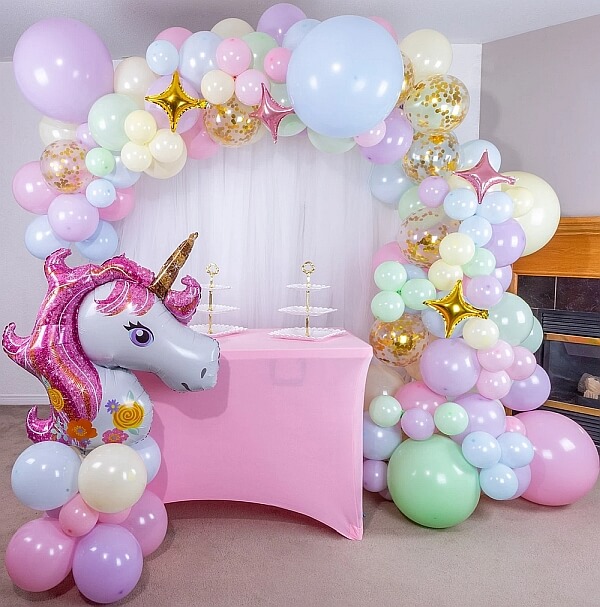Probably the best tagline in the world
Menu
How many balloons for an arch? Want a simple answer? Get my free calculator now!
- Home
- Balloony FAQ
- Balloons Behavior
Balloons Behavior
by Dalibor
(Bosnia)
Can you please tell me how low and high temperature, humidity, pressure, sun and other atmosphere factors affect balloons inflated with air and balloons inflated with helium?
Thank you
How Do Atmospheric Factors Like Temperature, Humidity, Sun and Air Pressure Affect Balloons?
A great question that's of importance to everyone decorating with balloons, whether professionally or as a hobby.
The answers apply to both air filled and helium filled balloons. In general though, helium filled balloons are affected more, because helium is very susceptible to changes in air pressure and temperature.
Temperature:
In an environment with high temperature, the balloon will expand. This can eventually lead to popping if the balloons are over-inflated or subjected to sudden temperature changes.
Conversely, in low temperatures, the air or helium inside the balloon contracts, making the balloons appear under-inflated or shrunken.
Tip: To mitigate these effects, inflate balloons in the same conditions they will be displayed, such as inflating them outside if they will be displayed outdoors.
Air pressure:
At lower atmospheric pressures, as experienced at high altitudes, gas within balloons expands more due to lower external pressure against the balloon. Once the difference becomes too big, the balloon will pop.
Helium, being less dense and more responsive to pressure changes compared to air, will cause helium balloons to expand more and pop at lower altitudes, around 28,000 to 30,000 feet (8,534 to 9,144 meters).
For us balloon decorators, the variations in air pressure don't really play a role. You'd have to go up to the top of Mount Everest to notice a difference!
Humidity:
Latex balloons are porous and can absorb moisture. The moisture changes the structure of the rubber making it more 'rubbery' and stretchable. Short term, this means that you can blow up a balloon to a bigger size in a humid environment than in a dry one.
Over time, however, excessive moisture can break down the latex, making it weak and prone to popping.
Sun:
Sun, together with wind and heat, will biodegrade the latex. That's why latex balloons won't last long if you use them outdoors. The first sign of the degradation is that the balloons oxidize, i.e. they lose their shine and start looking dull, as if they had a thin white layer over their initial color.
Additionally, heat from the sun can increase the internal pressure within the balloon causing them to expand or pop, especially if they are of a darker color, which absorbs more heat.
Outdoor usage typically reduces the lifetime of balloon decor compared to indoor decorations.
Tip: Use lighter colors and underinflate balloons to give them room to expand in the heat. More tips below!
When you're prepping for a big event and want the balloon decorations to be just perfect, especially if it's an outdoor affair, keep these weather factors in mind.
Stick with the best balloon brands for outdoor decor.
Planning is key if you're dealing with weather changes. Opting for air-filled decorations can give you a bit more wiggle room with the temperatures fluctuating. This way, you can ensure those balloons stay stunning from start to finish, without wilting under the weather's whims.
Further Reading About Balloons Behavior in Outdoor Conditions:
Outdoor Balloon Decorations: Do's and Don'ts to Make Your Event Special
How to prevent balloon decor from popping in outdoors heat?
When can I blow up balloons for an outside event?
How to Keep Balloons Shiny
How to reduce oxidation on latex balloons
And then there's the BalloonHQ that has a whole section about how outdoor conditions affect balloons.
Comments for Balloons Behavior
|
||
|
||






